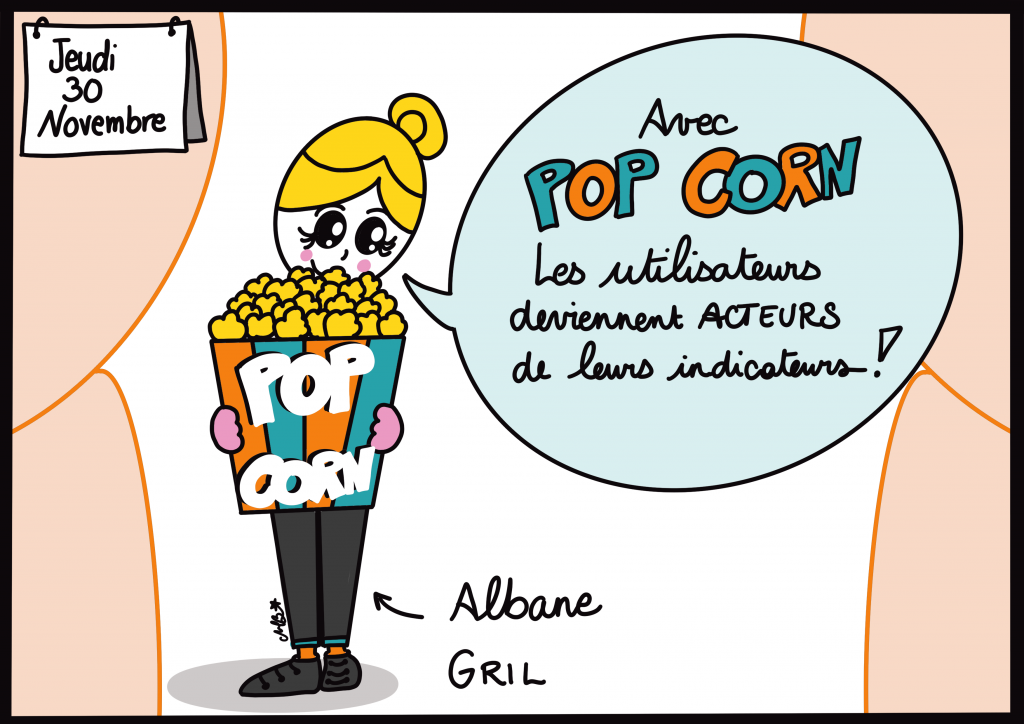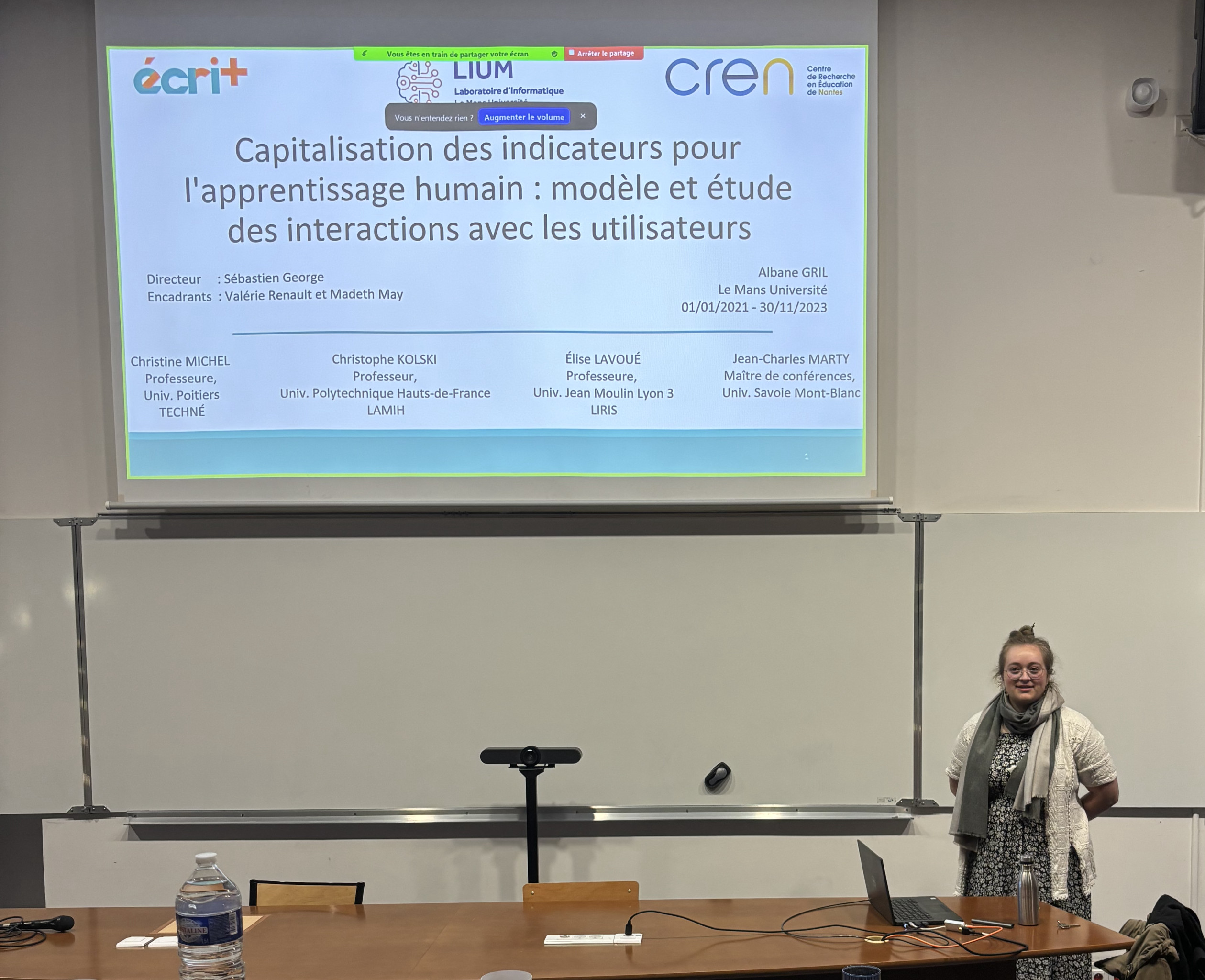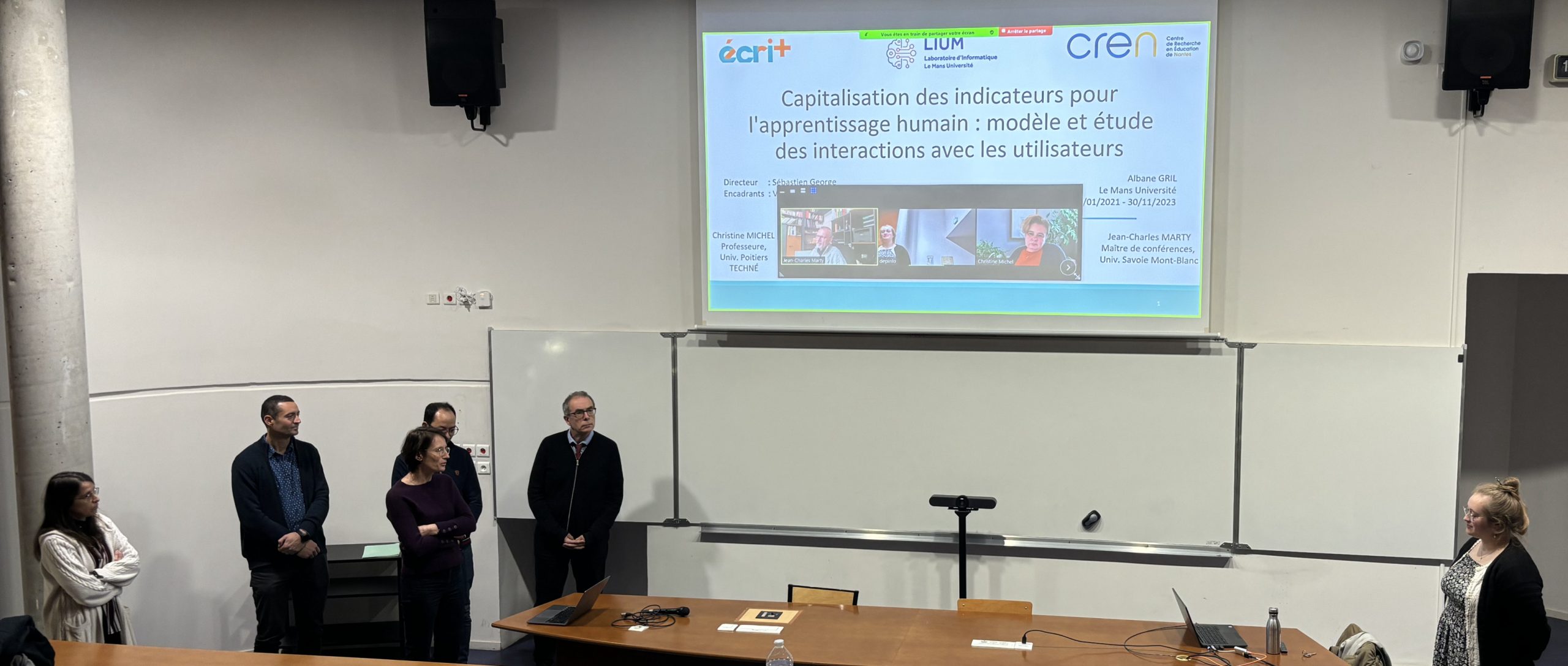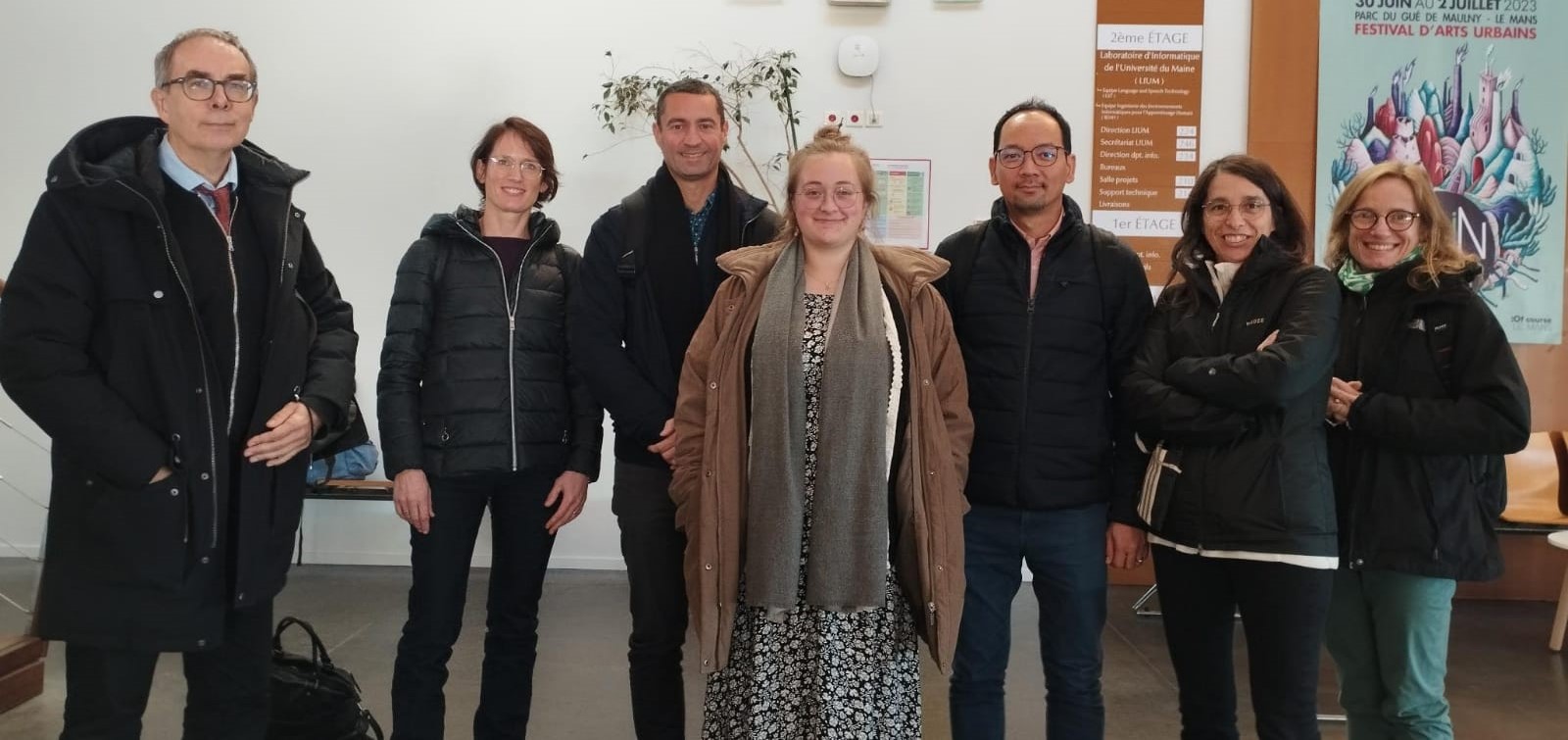PhD defence, Albane Gril
Date : 30/11/2024
Heure : 9h00
Lieu : Le Mans Université, amphithéâtre bâtiment IC2
Titre : Capitalization of data indicators for human learning: model and study of user interactions
Jury:
- Christine MICHEL, Professeure, Université de Poitiers – TECHNÉ
- Christophe KOLSKI, Professeur, Université Polytechnique Haut-de-France – LAMIH
- Élise LAVOUÉ, Professeure, Université Jean Moulin Lyon 3 – LIRIS
- Jean-Charles MARTY, Maître de conférences, Université de Savoie Mont-Blanc
- Sébastien GEORGE, Professeur, Le Mans Université – LIUM
- Valérie RENAULT, Maître de conférences, Le Mans Université – CREN
- Madeth MAY, Maître de conférences, Le Mans Université – LIUM
 Abstract :
Abstract :
We are interested in dara indicators for learning. They are used by different actors (learners, teachers, training managers, etc.) to analyze and improve learning. Their use reflects the wide diversity of existing pedagogical practices. We aim to meet the challenges of designing and adopting these data indicators by proposing a capitalization process. The aim of this process is to give all users control over the evolution and relevance of the available indicators.
In examining current approaches to indicator design, we note that users are increasingly solicited, through needs gathering and validation consultations, but often remain passive. Indicator modeling choices also limit their evolution over time and through use. We hypothesize that these users are the driving force behind the capitalization of data indicators.
An initial experimentation enabled us to observe how users perceive data indicators. It also enabled us to consider the part users could play in the capitalization process. These observations led us to identify interactions between users and indicators that could lead to capitalization.
We then developed a model of capitalized indicators capable of being enriched by each of the interactions identified.
These elements are implemented in a prototype, POPCORN, for data indicator capitalization. This instrumentation enables us to test our theoretical proposals with users, mainly teachers. Our analyses are extended to new experiments, always with the aim of making the user the orchestrator of capitalization. These experiments also enable us to validate our model of capitalized indicators as our major contribution to the capitalization process.
Keywords : data indicator, capitalization, user interaction, learning analytics




 Français
Français
